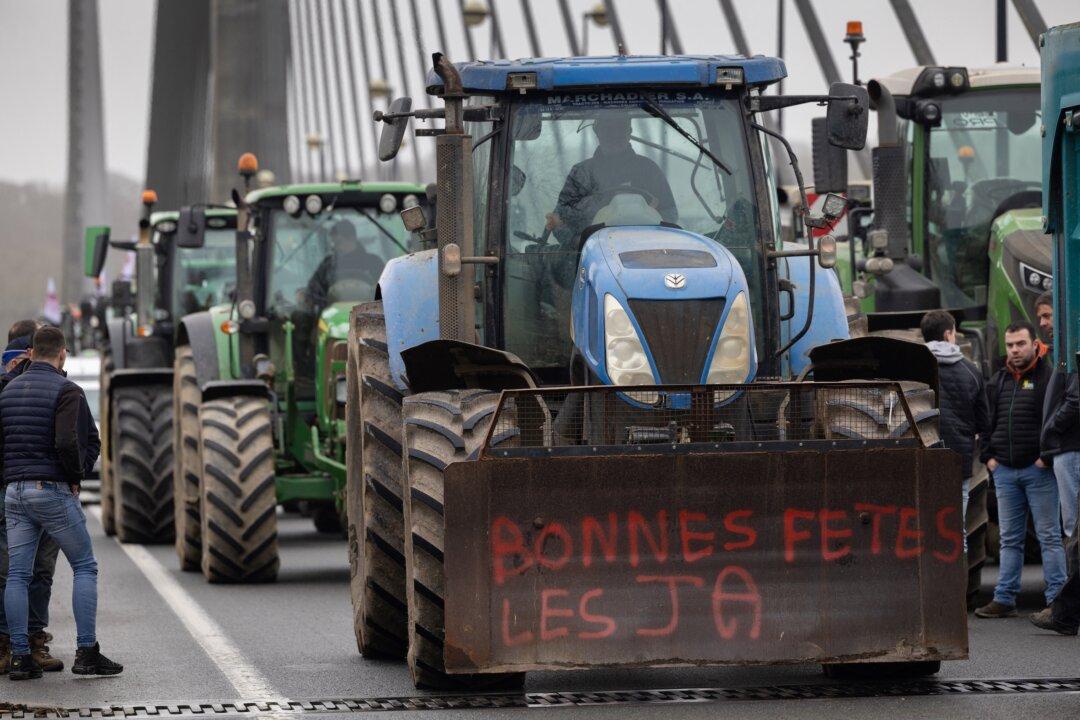Farmers in Belgium have blocked access to the country’s second-largest seaport to protest steadily mounting fuel prices and unpopular European Union policies that they say are destroying their businesses.
The protest in Belgium follows similar actions by farmers in other EU member states, including France, Germany, Poland, and the Netherlands.





